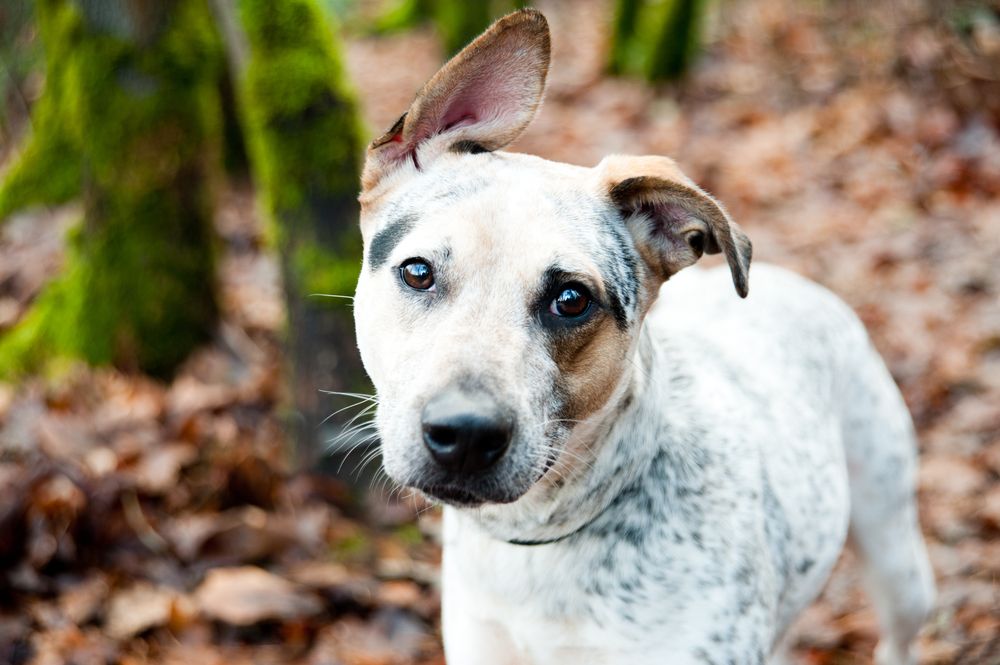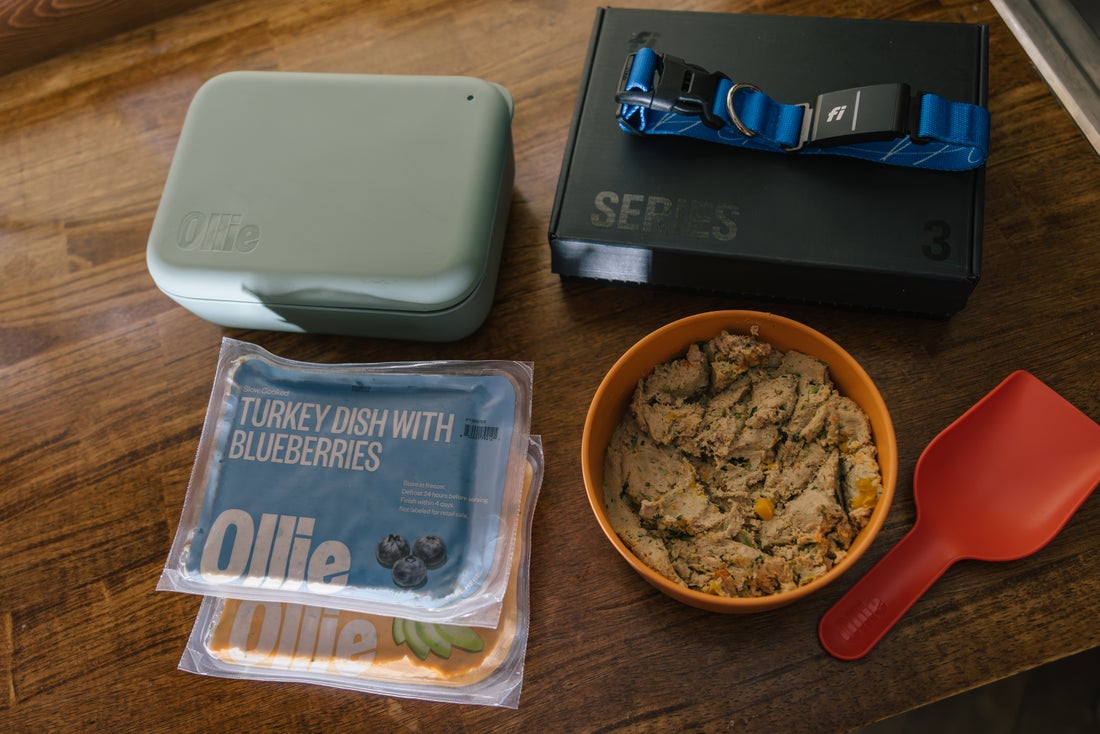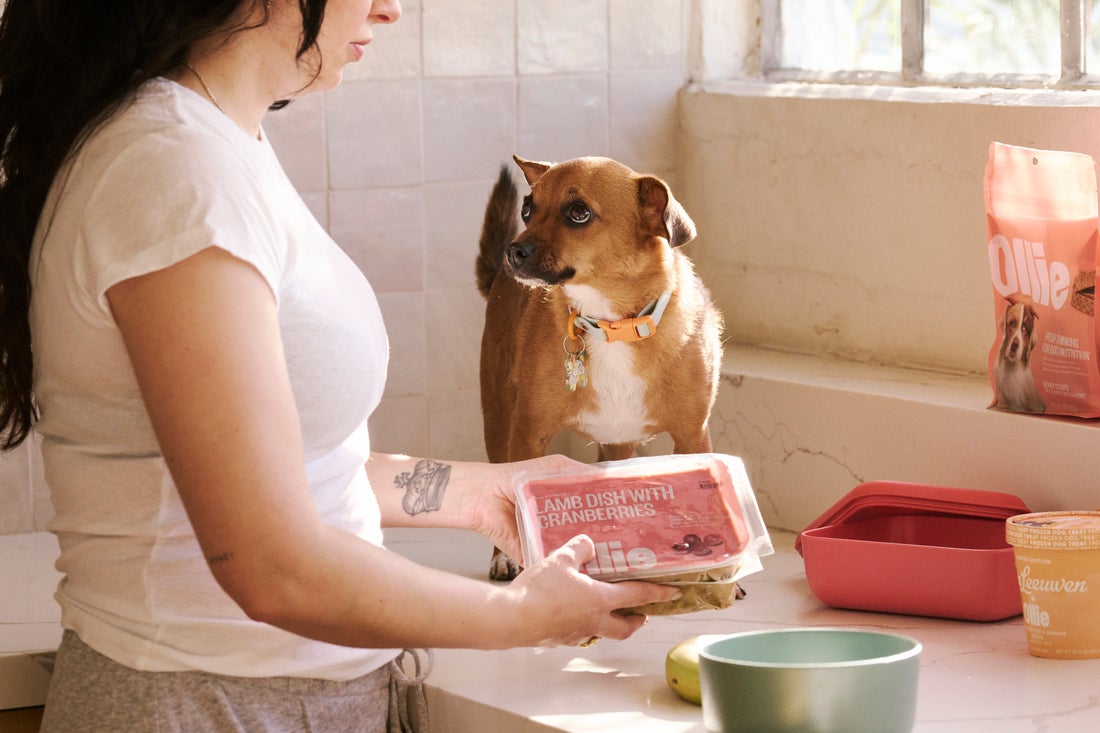Hey Ollie blog readers! We’re offering you an exclusive 60% OFF your starter box! Try now!
One of the biggest debates in pet health is if mutts (mixed-breed dogs) are healthier than their purebred counterparts. This might be an important consideration when deciding what type of dog to add to your family. A dog with a chronic health condition requires additional care and may need medication and more frequent vet visits. The cost of this both financially and as an investment of time can add up over the years.
We did our homework and learned about some of the reasons why mixed-breed dogs may be healthier than purebreds and what to look for when choosing a dog to be part of your family.

A more diverse gene pool?
If you remember back in high school, you learned about dominant and recessive genes and how parents pass things like hair and eye color down to their offspring. They also can pass down predisposition to certain medical issues.
Mutts have a significantly more diverse gene pool than purebreds. Dr. Patty Kyhuly says “Since they are likely to have a lower risk for receiving a high dose of specific purebred genetic material that can lead to inherited disease, I believe they’re healthier than purebreds in this particular sense. As a result, many mutts have a lower rate of hip dysplasia, certain knee diseases, most spinal diseases, many heart diseases, plenty of cancers and a whole lot of skin, blood, brain, liver and kidney diseases, among others.”
A study conducted by researchers at the University of California-Davis titled Prevalence of inherited disorders among mixed-breed and purebred dogs ran from 1995-2010. This study looked at 27,254 dogs with genetic conditions. The study concluded that “Genetic disorders differed in expression. No differences in expression of 13 genetic disorders were detected between purebred dogs and mixed-breed dogs (ie, hip dysplasia, hypo- and hyperadrenocorticism, cancers, lens luxation, and patellar luxation). Purebred dogs were more likely to have 10 genetic disorders, including dilated cardiomyopathy, elbow dysplasia, cataracts, and hypothyroidism.” They did however find that “Mixed-breed dogs had a greater probability of ruptured cranial cruciate ligament.”

Easier on your wallet?
In many cases, mutts are considerably easier on your wallet than their purebred counterparts. First, purchasing a puppy or dog from a reputable breeder can cost anywhere from $900 to $8,000 on average. There are a lot of factors that go into setting these prices. Great breeders spend a lot of money to have their dogs tested and screened for disease and compatability to ensure the healthiest pups that comply with breed standards. Expect to pay more for dogs that are show quality. Dogs with undesirable coloring or who don’t conform to a breed standard generally carry a less steep price tag.
When purchasing a pup from a breeder you will likely have to sign a contract stating that you will have the dog spayed or neutered when they are an appropriate age. If you are purchasing a purebred dog to breed yourself or show, you may be held to different rules. The cost of this procedure can range from $100- $600 depending on the vet’s pricing.
Unless you’re purchasing from a ‘backyard breeder’ or get your puppy from a friend who’s pup got pregnant, you are likely going to find most of your mutts at a rescue or shelter. The cost to adopt one of these dogs will depend on the pup’s age and desirability. Pups from 8-16 weeks old with outgoing personalities and generally “cute” features are the most expensive ranging from $125-$450 on average. Older puppies and dogs or those who have been in a shelter for a longer time can often have their adoption fees heavily discounted or even waived. Expect to only pay for a dog license or up to $75 to take one of these dogs home. The adoption fee usually includes the cost of the spay or neuter procedure and appropriate shots up the the point when you take your pup home.
Except pups who leave the shelter with a medical issue like kennel cough or god forbid, a deadly infection like parvo, you’re likely going to spend much less on healthcare upfront. While you may not be able to trace your new dog’s genetic health history, try to learn as much as you can about your pup’s health history before leaving the shelter. An initial vet consult will also give you some insight and help you watch for any issues that may develop as a result of your dog’s features. For example some mutts with certain shaped ears are more prone to ear infections than others.Shorter mutts may need to be monitored to ensure they don’t develop back problems from jumping too high when they’re too young.

Full of Love
Ask almost any mutt owner and they will tell you that their dogs are a wonderful addition to their families and provide much love, affection and sometimes even comic relief.
Websites like The Dodo are filled with stories of heartwarming rescues and their amazing families. While there can be a bit of luck involved in finding the perfect pup, it is also important to have an idea of the type of dog you want. Even if you aren’t going for a specific breed there is a wide variety of looks and personalities within the classification of mutt. Some mutts are friendly and outgoing and others are more reserved. Some are short and fluffy and some are tall with short hair.Consider your family, living situation and personalities when trying to find the right fit to add to your family. If you do, you will be rewarded with a pup who makes your life so much richer!
To learn more about finding the perfect mutt for your family, reach out to your local shelter about fostering or adoption.
The Ollie blog is devoted to helping pet parents lead healthier lives with their pups. If you want to learn more about our fresh, human-grade food, check out MyOllie.com.
Tagged As:

The nutrition your dog needs,
the food they want.

Enjoying our articles? Subscribe our Newsletters and get new articles directly to your inbox
You might also like
18 September 2025
5 MINS READ
Can I Rotate Fresh Dog Food Flavors?
Yes, it’s safe to rotate fresh dog food flavors, and many dogs actually benefit from the variety. At Ollie, we offer multiple fresh recipes, like Beef, Chicken, Turkey, Lamb, and Pork so you can…
by Ollie Pets
18 September 2025
5 MINS READ
Is Fresh Dog Food Safe During Power Outages?
Fresh dog food is only safe during a power outage if it has stayed cold, specifically, below 40°F. Once the temperature rises above that point, bacteria can start to grow, and the food may no lon…
by Ollie Pets
18 September 2025
5 MINS READ
How Do I Store Fresh Dog Food While Traveling?
If you’re bringing fresh dog food on the road, keeping it cold is key. The best way to store it is in a cooler with ice packs or a travel freezer. At Ollie, our vacuum-sealed fresh food stays good…
by Ollie Pets







